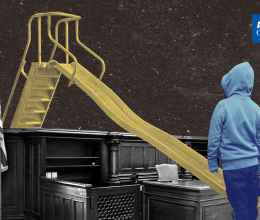COLUMBUS- The American Civil Liberties Union of Ohio sent letters to all county prosecutors and members of the Ohio General Assembly today, calling on them to respect the role of law and not impose heavy-handed charges on “sexting” teens. Throughout the past several weeks, county prosecutors from around the state have threatened to charge teens with felonies and have them labeled sex offenders if they are caught sending nude or partially nude images to others. State legislators have also discussed possible legislation to address the issue.
ACLU of Ohio Legal Director Jeffrey Gamso said, “Child pornography laws were created to protect child victims from adults who prey on them. In sexting cases, the victim is often also the perpetrator who originally distributed the photo. Local officials are twisting the law to prosecute those they were meant to protect. ”
“A conviction for sexting can do far more than teach a lesson — it can ruin a life. Teens found to have committed a felony or labeled a sex offender could be barred from certain jobs and educational programs, required to register for years with local law enforcement and have restrictions on where they may live. While teens should be educated on the consequences of distributing nude photos, imposing these harsh punishments will only further harm young lives.” added Gamso.
Besides Ohio, other states have begun to grapple with the issue of teen sexting. In late March, the ACLU filed suit against a prosecutor in Pennsylvania because he threatened to charge three girls with sex crimes because partially nude photos of them were found on a classmate’s cell phone. The judge sided with the ACLU on March 30 and granted a temporary restraining order prohibiting the prosecutor from filing the charges.
“We all must do better at educating young people about respecting the dignity and privacy of themselves and their peers. By simply locking them up and imposing punishments, we disregard our duty to engage young people and teach them responsibility. What is even worse is that these punishments could endanger the child’s ability to succeed and overcome their previous misguided decisions,” Gamso concluded.









